The Chinese Are Coming!

Last month, we reported that China’s Great Wall received the EC Whole Vehicle Type Approval (WVTA,) awarded by the UK Vehicle Certification Agency (VCA) for their Coolbear MPV, which makes the car legal for sale in Europe.
Since this approval is lengthy (takes about a year) and costly (even when administered by the VCA, which is known for bargain basement pricing,) the announcement was taken as an intention of Great Wall to enter the European market. Here they come:
Initially, the small (and poor) Baltic states of Estonia, Latvia and Lithuania will be targeted as some kind of a test market. From 2011 on, launches in Scandinavia, the UK and Ireland are planned.
On closer inspection, it now turns out that Great Wall had not received one, but a total of four WVTA certifications: For the Florid, Coolbear, Hover 5, and Wingle 4.
Great Wall is not the only manufacturer who has received WVTA. But WVTA is only half of the bargain. To make the vehicle totally legit, the company must survive what is called an “initial assessment,” an intrusive colonoscopy-like procedure, in which foreign inspectors dissect the deepest secrets of a company, from product management to conformity of production, all the way down to how parts of old cars can be re-used and recycled. In other words: You can’t just present a compliant prototype. You must also prove that you are able to produce it in consistent quality. According to a statement by Great Wall, they are the first Chinese car company to successfully complete such an assessment. Without a positive initial assessment, you have spent a lot of time and money for the certification of a car, and you still can’t sell it freely in Europe.
Great Wall is one of the few privately owned Chinese car makers. The I.M. Group maintains an office in Beijing, employing about 40 people. Coincidentally, the Chinese Rep Office of the VCA is just down the hall. I.M. is in Unit 801 of the Manhattan CNT Building in Beijing, the VCA is in Unit 818.

Bertel Schmitt comes back to journalism after taking a 35 year break in advertising and marketing. He ran and owned advertising agencies in Duesseldorf, Germany, and New York City. Volkswagen A.G. was Bertel's most important corporate account. Schmitt's advertising and marketing career touched many corners of the industry with a special focus on automotive products and services. Since 2004, he lives in Japan and China with his wife <a href="http://www.tomokoandbertel.com"> Tomoko </a>. Bertel Schmitt is a founding board member of the <a href="http://www.offshoresuperseries.com"> Offshore Super Series </a>, an American offshore powerboat racing organization. He is co-owner of the racing team Typhoon.
More by Bertel Schmitt
Latest Car Reviews
Read moreLatest Product Reviews
Read moreRecent Comments
- Mike Bradley Autonomous cars were developed in Silicon Valley. For new products there, the standard business plan is to put a barely-functioning product on the market right away and wait for the early-adopter customers to find the flaws. That's exactly what's happened. Detroit's plan is pretty much the opposite, but Detroit isn't developing this product. That's why dealers, for instance, haven't been trained in the cars.
- Dartman https://apnews.com/article/artificial-intelligence-fighter-jets-air-force-6a1100c96a73ca9b7f41cbd6a2753fdaAutonomous/Ai is here now. The question is implementation and acceptance.
- FreedMike If Dodge were smart - and I don't think they are - they'd spend their money refreshing and reworking the Durango (which I think is entering model year 3,221), versus going down the same "stuff 'em full of motor and give 'em cool new paint options" path. That's the approach they used with the Charger and Challenger, and both those models are dead. The Durango is still a strong product in a strong market; why not keep it fresher?
- Bill Wade I was driving a new Subaru a few weeks ago on I-10 near Tucson and it suddenly decided to slam on the brakes from a tumbleweed blowing across the highway. I just about had a heart attack while it nearly threw my mom through the windshield and dumped our grocery bags all over the place. It seems like a bad idea to me, the tech isn't ready.
- FreedMike I don't get the business case for these plug-in hybrid Jeep off roaders. They're a LOT more expensive (almost fourteen grand for the four-door Wrangler) and still get lousy MPG. They're certainly quick, but the last thing the Wrangler - one of the most obtuse-handling vehicles you can buy - needs is MOOOAAAARRRR POWER. In my neck of the woods, where off-road vehicles are big, the only 4Xe models I see of the wrangler wear fleet (rental) plates. What's the point? Wrangler sales have taken a massive plunge the last few years - why doesn't Jeep focus on affordability and value versus tech that only a very small part of its' buyer base would appreciate?



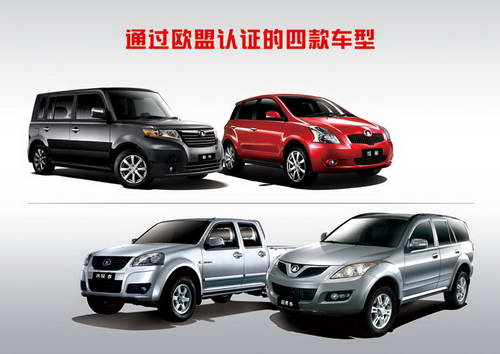















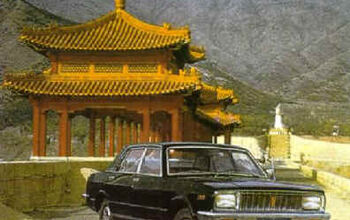
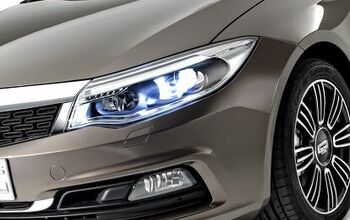
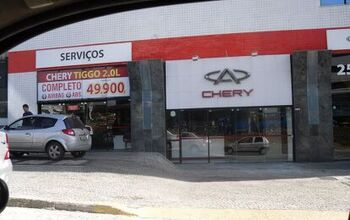
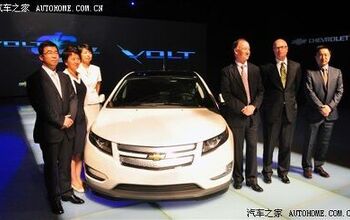
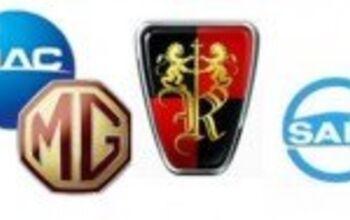










Comments
Join the conversation
Scion xB/Toyota Yaris Frontier/Mitsu Outlander? I can understand that they may not have a problem selling this stuff in China, but would there not be some copyright laws or some such to prevent it from being sold elsewhere? Why do automakers not take full-on legal action against this crap, or can they not do that? I'm sure that part if the problem is that they don't want to rock the boat and get kicked out of the HUGE Chinese market, but could governments from other nations not appeal to the Chinese regarding the IP of these companies that are clearly getting ripped off? This is just total B/S!
The Chinese may be coming to... Europe. But not to America, methinks. Judging from Top Gear just about anything with four wheels is allowed to exist (see Clarkson driving that little egg inside the BBC building) but America is the Land of the Lawyer and even the Chinese must know that not even the great and sainted Mao can withstand a typical class-action lawsuit. If Apple and Microsoft can tangle over the "look-and-feel" of the GUI user interfaces, just imagine what our lawyers can do with the typical copycat (If they can do it, we can do it worse!) nature of Chinese "design". Just imagine the legal fees! Besides, judging from the explosive growth in domestic sales, why would the Chinese bother to try their hand in a shrinking American car market?